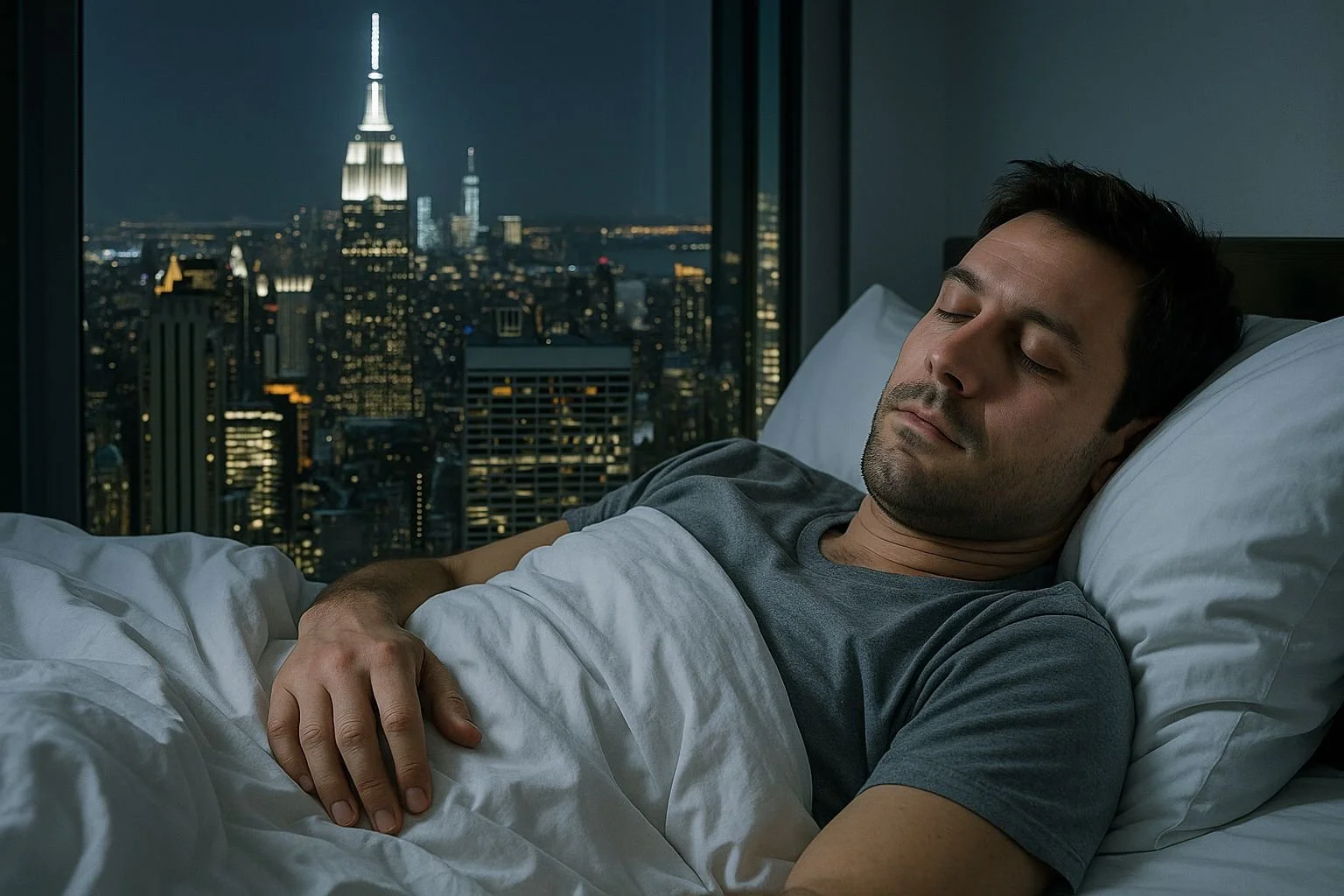How many hours do New Yorkers sleep?
New York City is notoriously called "The City That Never Sleeps," yet ironically, much of its population can't get a good night's sleep. So, just how much sleep do New Yorkers get? The answer paints a complicated picture informed by the city's hectic pace, environmental considerations, and cultural practices. In this blog, we’ll explore the average sleep duration of New Yorkers, the reasons behind their sleep patterns, and practical tips to improve rest in the city that never stops moving.
Average Sleep Duration in New York City
Recent studies and surveys provide insight into how much sleep New Yorkers get on average:
In a 2024 survey, nearly 59% of New Yorkers say they sleep eight or more hours, but other statistics indicate that this figure is probably lower in practice.
Research by UK bed firm Mornings discovered that New Yorkers are the sleepiest city residents in the world, sleeping an average of just six hours per night, usually going to bed at midnight and rising at 6 a.m..
Another survey came up with statistics that on weekdays, New Yorkers sleep an average of around 5.9 hours, raising slightly to around 6.4 hours at weekends.
A figure from wearables indicated around 5 hours and 46 minutes of sleeping every night.
Recent statistics put in a figure for the average amount of time spent sleeping, as around six hours and 36 minutes nightly.
These statistics also consistently report that New Yorkers receive less sleep than the adult ideal of 7-8 hours, indicating a common phenomenon of sleep deprivation in the city.
Why Do New Yorkers Sleep Less?
A number of reasons account for the reduced sleep experienced by most residents:
1. The City's Nonstop Energy
New York's lively nightlife, 24/7 public transportation, and limitless entertainment possibilities invite late nights. The city's nickname, "The City That Never Sleeps," describes a culture where activity never stops, making it irresistible to stay up late.
2. Noise and Environmental Disruptions
Residing in a highly populated urban area entails incessant noise from traffic, sirens, construction, and neighbors. These disruptions can disrupt sleep or render it hard to fall asleep in the first place. Specialists suggest using earplugs or white noise machines to counteract these effects.
3. Work and Lifestyle Demands
Numerous New Yorkers work multiple jobs or long hours, having less time to rest. Pressure to perform in a competitive world usually translates into forgoing sleep for work or social activities.
4. Stress and Mental Health
The fast-paced and expensive lifestyle of NYC lends itself to higher stress levels, which may disrupt the capacity to fall asleep or remain asleep all night long.
5. Technology Use Before Bed
Most residents confess to phone or other screen use in the hour leading up to bedtime, which subjects them to blue light that inhibits melatonin production, making it more difficult to fall asleep.
The Impact of Sleep Deprivation on New Yorkers
Sleep deprivation has severe repercussions:
Cognitive Impairment: Decreased attention, memory issues, and reduced reaction times.
Emotional Health: Greater risk of anxiety, depression, and irritability.
Physical Health: Increased risk of cardiovascular disease, obesity, and compromised immune function.
With these risks in mind, better sleep quality is crucial to ensuring health and productivity in the city.
Better Sleep in the City: Tips
New Yorkers can overcome the challenges by taking the following steps to enhance their sleep:
Create a Restful Environment
A tidy and organized bedroom encourages relaxation. Companies like Sparkly Maid NYC can be helpful in keeping a clean living space, thereby alleviating stress and a soothing environment for sleeping.
Control Noise and Light
Block urban lights using blackout curtains and earplugs or white noise machines to cancel out disturbing noises.
Create a Regular Sleep Routine
Sleeping and waking up at a consistent time each day is useful for setting the body's internal clock.
Restrict Bedtime Screen Time
Cutting back on screen time at least one hour before sleep can enhance sleepiness and facilitate falling asleep.
Make Relaxation a Priority
Engage in relaxing activities like reading, meditation, or light stretching before bedtime.
Use Convenient Services
For New Yorkers with busy schedules, a *same day cleaner* is a godsend, keeping the home clean without encroaching on valuable rest or relaxation time.
How Sleep Needs Vary
Sleep professionals point out that although 7-8 hours is the typical guideline, people are different. Some individuals will feel rested on a bit less, while others need more. The important thing is to tune in to your body and make adjustments accordingly.
New Yorkers usually sleep less than recommended, averaging just about six hours a night because of the city's constant energy, environmental conditions, and demands of lifestyle. Still, by establishing a clean and quiet atmosphere, controlling noise and light, and following healthy sleep practices, residents can enhance their rest and well-being.
When city life becomes too much, cleaning services such as Sparkly Maid NYC will keep your home tidy so that you can concentrate on rest and relaxation. If you need a quick cleanup or a same day cleaner to deal with surprise messes, these services facilitate a healthier, more balanced urban lifestyle in the city that never sleeps.
